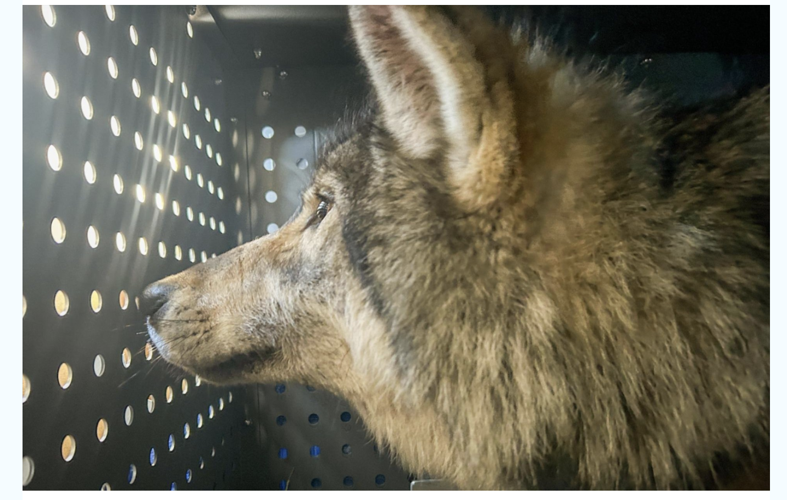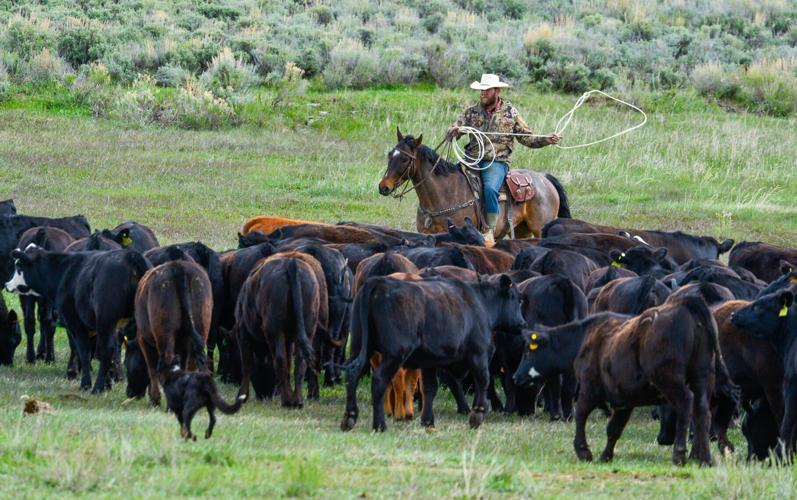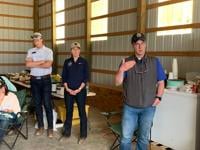Rural Reckoning | Wolves prey on relationship between Polis and rural Colorado
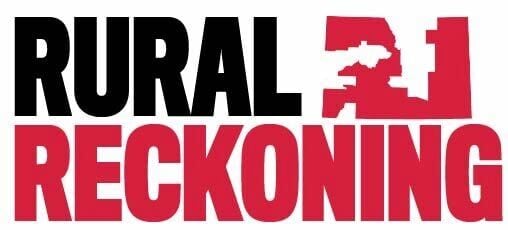

While the COVID-19 pandemic became the defining issue of Gov. Jared Polis’ first term, the reintroduction of wolves on the Western Slope is likely to cement his legacy — however history ultimately judges his time in the executive office — in his final four years, particularly for rural residents.
Voters, primarily on the Front Range, narrowly approved the reintroduction of wolves onto Western Slope lands in 2020. Rural voters overwhelmingly rejected the idea, but, outnumbered, lost that battle.
And when it comes to the apex predators that are now preying livestock, the governor has plenty of critics — and supporters.
Critics said his administration lacked transparency, failed to act quickly and continues to ignore the pleas of ranchers, who recently asked that the wildlife commission suspend bringing in more wolves to Colorado until after mitigation programs meant to minimize conflict with the animals and help livestock growers are fully in place.
Former Gov. Bill Ritter said the controversy with wolves cannot be laid solely at Polis’ feet. Like all governors, the state leader must enact the will of the voters — whether he supports the policy or not. Polis was required by law to develop a wolf reintroduction program, Ritter said.
In agreeing with Ritter, Polis said, “Well, some people don’t like wolves, but I think they understand that I’m doing the best I can with the hand I was dealt, and I trust the professionals at CPW to implement the will of the voters.”
The governor was referring to the Colorado Parks and Wildlife, the agency tasked with implementing the wolf program and whose relationship with ranchers has become so strained that the many have now threatened to sever conservation partnerships with the state.
The wolf program has cost the state millions more than what was forecast in the 2023 General Assembly’s Blue Book, which pegged the amount at $800,000 a year.
The actual expenditure has exceeded $8 million over five years, with $3 million of that occurring in the last two years.
Notably, the state has paid more than $580,000 in claims submitted in 2024 by ranchers for losses incurred due to wolf activity. The state’s budget for compensation is only $350,000.
Polis said part of the spending increase resulted from the state’s efforts to directly help ranchers, noting that hiring range riders and paying out for lost livestock has cost more than expected.
The governor said he has always focused on how best to help farmers and ranchers as the wolf reintroduction sees success, while noting he understands some in rural communities never wanted them at all.
Tasked with developing a plan to reintroduce wolves to Colorado, the state wildlife agency hired Jeff Davis to be its director in 2023. The agency was also responsible for seeking a federal ruling that would allow the state to manage the wolves and find funding.
The first wolves were released on state public lands in Grand and Summit counties in December 2023, although other wolves had already migrated from Wyoming into Jackson County several years before.
Polis and his husband, Marlon Reis, attended the release “party” in December 2023 in Grand County.
The backlash was immediate, as ranchers and local elected leaders from the very counties where the first wolves were released said they had not been notified of the release.
The lack of transparency plagues the Polis administration to this day. State and rural lawmakers, along with ranchers, have often complained that they have been being left out of the decision-making process and are missing information and updates.
Wolves were first sourced from Oregon, where some came from packs with a history of killing livestock, a direct contradiction of the wolf plan.
The plan entails bringing in 10 to 15 wolves a year for three to five years — up to 50 of the apex predators by the end of that period. Also under the plan, state officials are supposed to specifically reject the relocation of wolves with “a known history of chronic depredation, and sourcing from geographic areas with chronic depredation events should not occur.”
Last year, after no other Western states would give wolves to Colorado, the state went international, making a deal with British Columbia, the Canada province.
Polis blames ranchers for soaring costs
In one of the signs of the deteriorating relationship between livestock growers and the governor, Polis blamed ranchers for advocating with their counterparts in other states, where Colorado was going to source more wolves, to deny that request.
During a 2024 meeting with Colorado Counties, Inc., Polis said if ranchers, such as those from the Middle Park Stockgrowers in Grand County, had requested wolves from nearby Wyoming, the state would probably have given them to Colorado.
In a later statement, a Polis spokesperson said, “The reality is the state initially attempted to source wolves from Wyoming, Montana, and Idaho, but these common-sense requests were denied following special interest, lobbying, and political games by certain organizations.”
Since wolves were reintroduced in Colorado, Middle Park ranchers have been hit the hardest by livestock losses.
It took just a few months for the problems to surface, beginning during calving season in 2024, when wolves fed on livestock throughout Middle Park.
The management plan called for non-lethal techniques to ward off the wolves, but the state failed to set up most of those programs until after the second batch of wolves were released in Pitkin County in January 2025.
Ranchers and local officials said anew they were left in the dark about the wolves’ release.
The release of the Copper Creek pack in Pitkin County also violated the state’s wolf plan, which stated that predators that killed livestock in other parts of the state would not be relocated elsewhere.
The Copper Creek pack had originally been placed in Grand County, but with dozens of livestock killed there, much of it attributed to the male and female mating pair of the group, the state wildlife agency captured the wolves and four pups and placed them in a sanctuary for several months.
This move shifted the problem from one county to another.
The killings continued, now in Pitkin County, with the worst over the Memorial Day weekend this year, when the new pack attacked and killed livestock on at least three ranches.
That’s despite the efforts of state-hired range riders, who ranchers claimed sometimes ended up on the wrong locations.
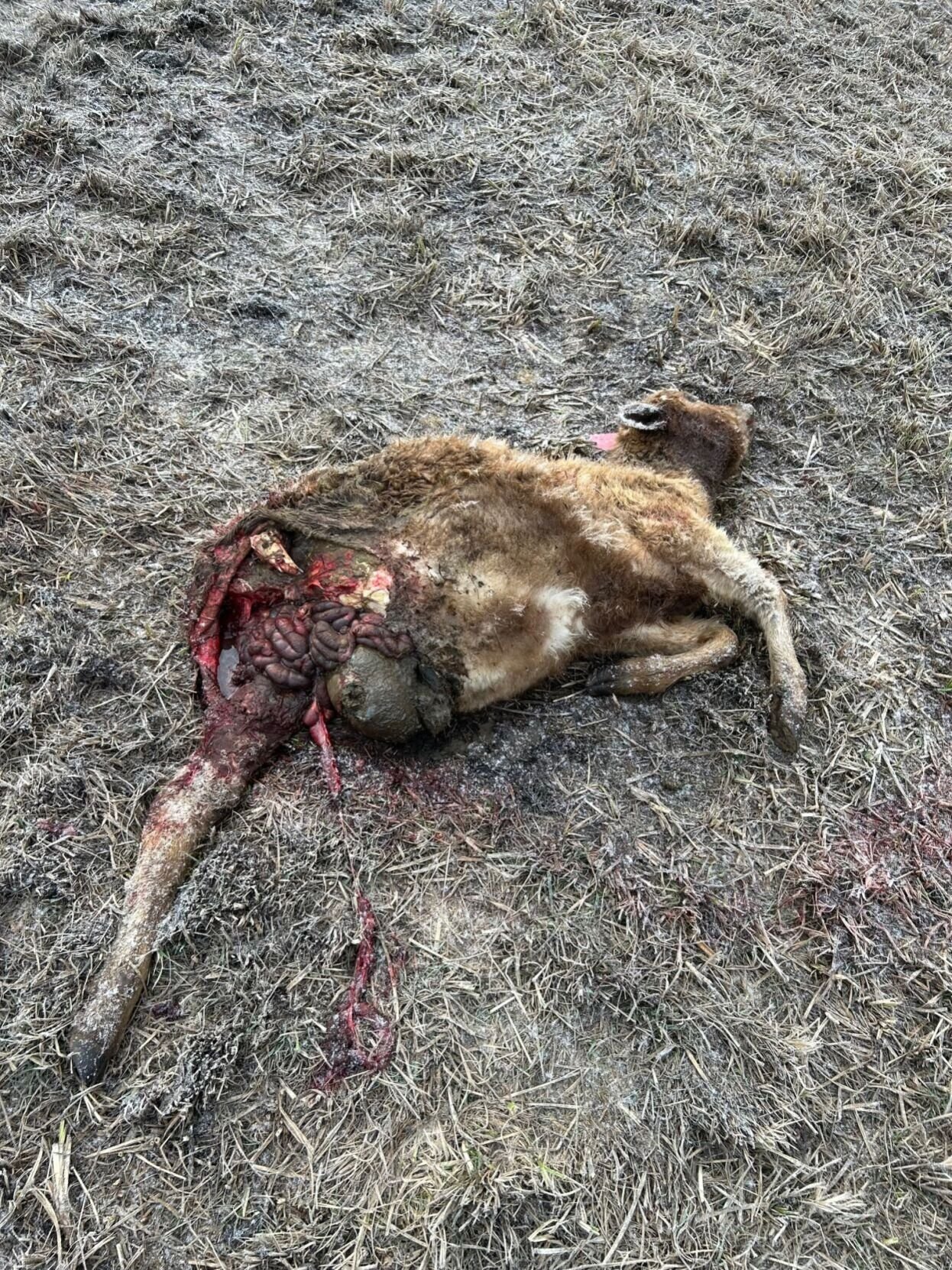
The remains of a yearling killed by a wolf in Grand County during the week of April 15. The yearling was one of four killed by wolves this week. Photo courtesy Middle Park Stockgrowers and The Fence Post.

The remains of a yearling killed by a wolf in Grand County during the week of April 15. The yearling was one of four killed by wolves this week. Photo courtesy Middle Park Stockgrowers and The Fence Post.
Ranchers: State intervention to kill wolf didn’t change pack’s depredating behavior
After the Memorial Day weekend kills, wildlife officers killed one of the wolves, a yearling from the pack, in the hopes the intervention would change the group’s behavior.
On July 18, CPW confirmed a Copper Creek wolf was still killing livestock and at the same ranch in Pitkin County.
A wildlife commissioner, Tai Jacober, told his colleagues in a July 3 meeting that wolves, likely from Copper Creek, scattered a herd of cattle over the Fourth of July weekend, requiring the rancher to spend the entire weekend rounding them up.
Jacober, a Pitkin County rancher, recently referred to the relocation of the Copper Creek pack there as a “mistake.”
Meanwhile, a video shot near the McCabe Ranch, where wolves have been killing livestock, shows two wolves trying to separate a calf from its mother.
The wildlife commission in early July declined to act on requests for lethal permits against the Copper Creek pack, saying that matter should be left to the state agency. The Holy Cross Cattlemen’s Association is now seeking a permit to lethally take the Copper Creek wolves.
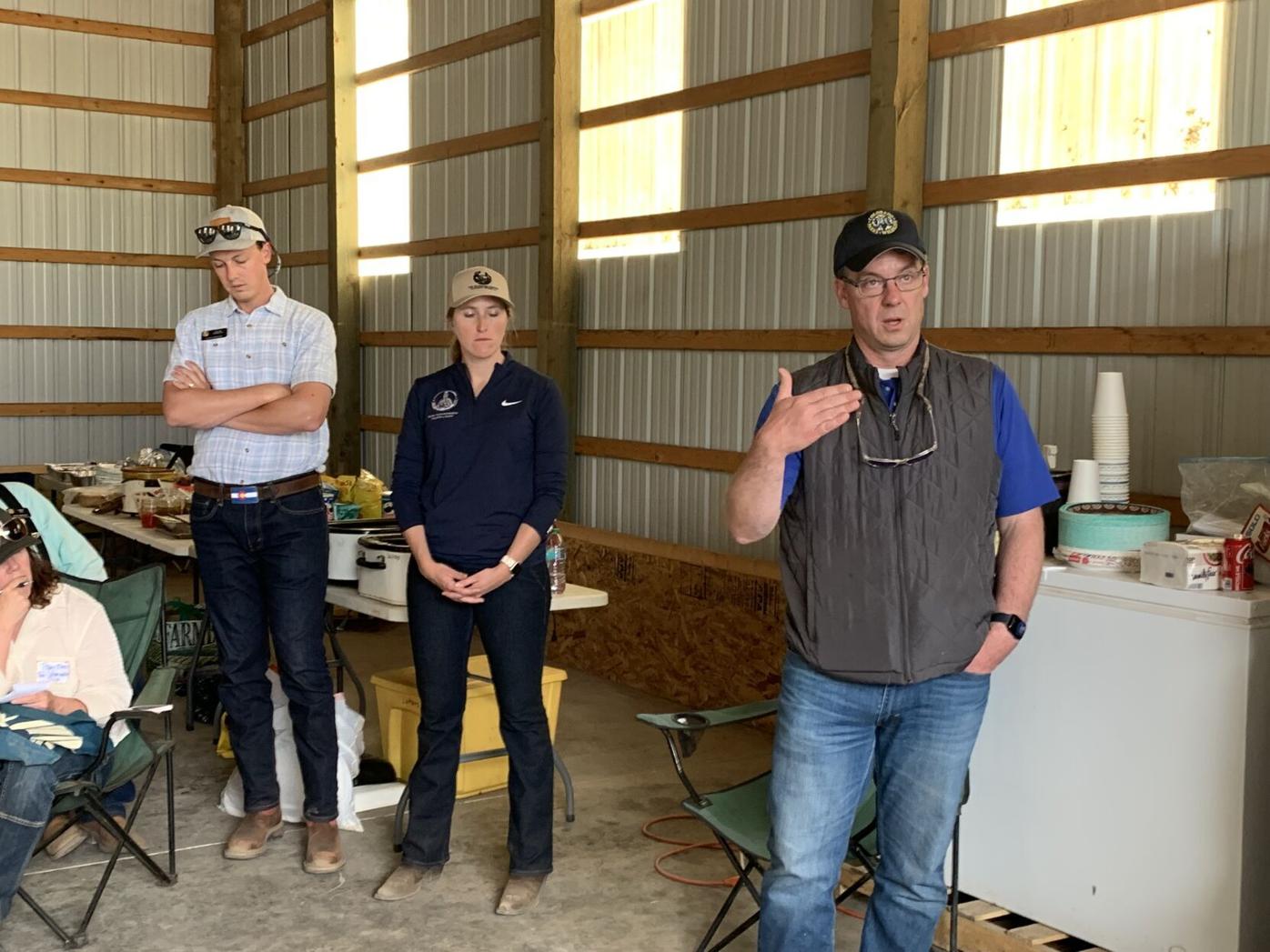
Jeff Davis, director of Colorado Parks and Wildlife, talks to ranchers during the Saturday summit at the Gittleson ranch near Walden.
Marianne Goodland marianne.goodland@coloradopolitics.com

Jeff Davis, director of Colorado Parks and Wildlife, talks to ranchers during the Saturday summit at the Gittleson ranch near Walden.
Governor reshapes wildlife commission — and draws criticism
Further fueling the tension, Polis is reshaping the Colorado Parks and Wildlife commission into one that, critics said, appears to favor wolves.
Often, the Senate Agriculture and Natural Resources Committee has served as a stopgap for gubernatorial nominees, though the decision to confirm ultimately rests with the state Senate.
The committee has rejected Polis’ nominees three times in the past two years, although two of the three later won confirmation from the Democratic-controlled Senate.
This year, they included Jay Tuchton, a former attorney for WildEarth Guardians who now manages a nature preserve in southeastern Colorado.
The Senate committee rejected Tutchton’s nomination. During the hearing, lawmakers called Tuchton to task for calling the chair of the Senate agriculture panel and the House Speaker “whiny politicians” who pander to the newspapers on the issue of “chronic depredation” by wolves.
The preserve that Tuchton manages was founded by the new executive director of the state land board, who advocates for the “rewilding” of grazing lands. Nicole Rosmarino previously served a policy advisor on wildlife, agriculture, and rural economic development in the governor’s office.
In 2024, two nominees were rejected by the committee: Jessica Beaulieu, an environmental lawyer and formerly with the Center for Biological Diversity, and Gary Skiba, a former CPW biologist previously associated with Defenders of Wildlife. The group had called Skiba “the primary author of Colorado’s wolf conservation plan” in a lawsuit filed against the state of California in 2021. That legal challenge also included the Center for Biological Diversity.
Beaulieu was nominated to represent state parks, despite a confession that she didn’t have a state park pass and could only name a few Front Range parks she had visited. She also admitted she had asked for help in figuring out who her constituents are.
Skiba, who was nominated to represent hunters and anglers, faced opposition from those very groups. Ranchers also opposed his selection. Skiba later withdrew his nomination.
Last month, the governor nominated John Emerick, the treasurer of Colorado Wild, a pro-wolf group, to replace Commissioner Karen Bailey, who served just one term.
Emerick’s partner is Delia Malone, the president of Colorado Wild, who is also the wildlife chair for the Colorado Sierra Club, a major backer of the wolf reintroduction program and a frequent commenter at CPW meetings on the wolf issue.
The second nominee is Francis Silva Blayney, a former “supervolunteer” for the Colorado Sierra Club. She replaces Marie Haskett, an outfitter who was term-limited and who was viewed as a champion for the Western Slope and for ranchers on the wolf issue.
Silvia Blayney, who was nominated as representative of the outfitters, is unknown in that community and has only held a legally required outfitters’ registration from the Department of Regulatory Agencies since April 1, 2025.
One outfitter called her nomination “manufactured,” claiming it was a way to increase the number of Sierra Club representatives on the wildlife commission.
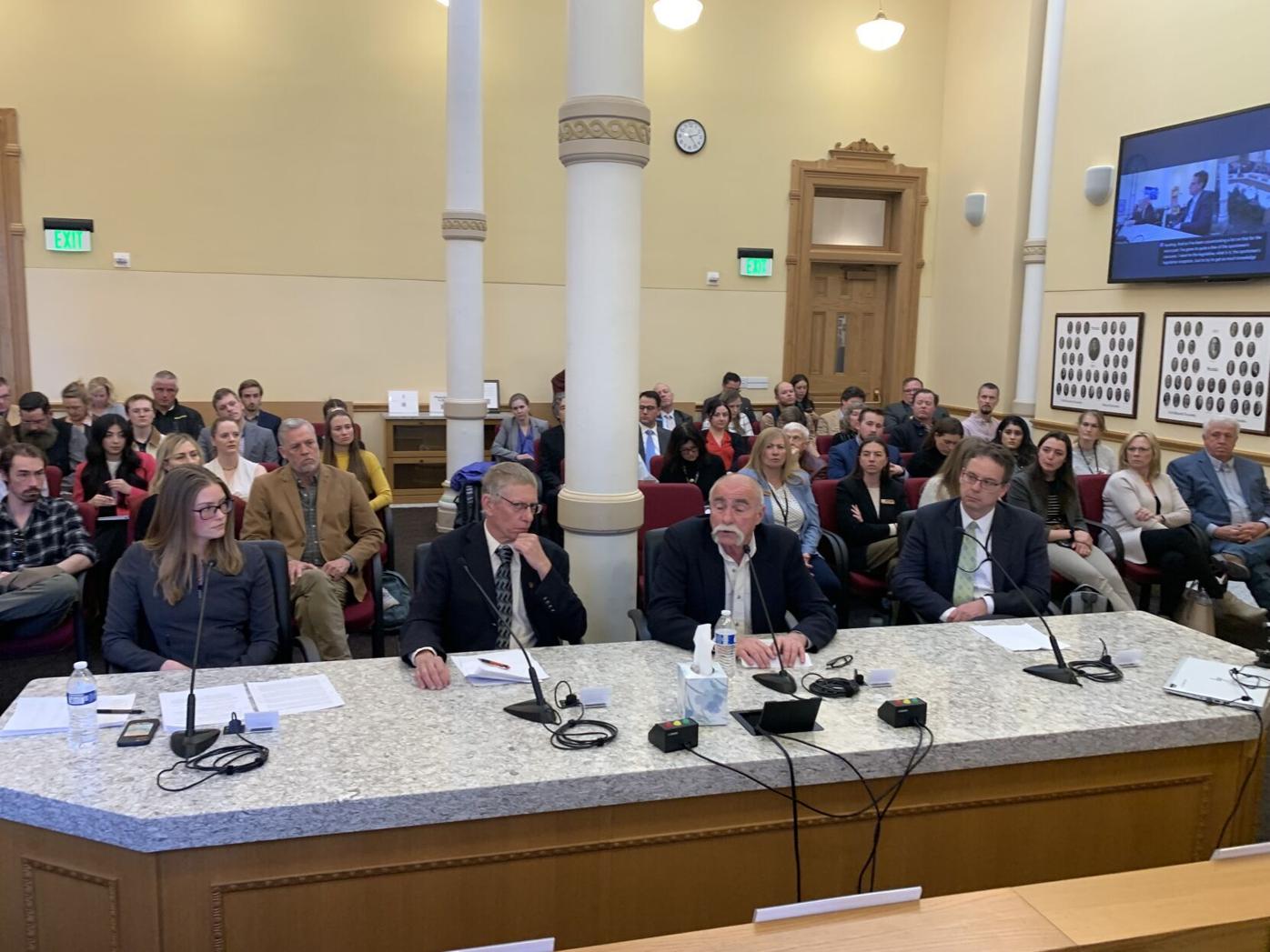
Three nominees to the state's Park and Wildlife Commission during their confirmation hearings on Feb. 29, 2024. From left to right, Jessica Beaulieu, Gary Skiba, Jack Murphy and CPW Director Jeff Davis. The Senate ag committee voted down Skiba and Beaulieu's nominations, although they will still head to the full Senate, albeit with an unfavorable recommendation.
Marianne Goodland marianne.goodland@coloradopolitics.com

Three nominees to the state’s Park and Wildlife Commission during their confirmation hearings on Feb. 29, 2024. From left to right, Jessica Beaulieu, Gary Skiba, Jack Murphy and CPW Director Jeff Davis. The Senate ag committee voted down Skiba and Beaulieu’s nominations, although they will still head to the full Senate, albeit with an unfavorable recommendation.
Polis insists rural Colorado is well-represented in appointments
On July 16, Polis told Colorado Politics his intention is never to change of the makeup of a board to fit his interests.
While touting his excitement over Silvia Blayney’s appointment, he stressed that filling all of the state’s open board positions is far from easy. There are more than 3,000 such positions, Polis said, emphasizing that Colorado Parks and Wildlife is not the only priority.
Polis said his administration has worked to ensure rural Colorado is represented — that 23% of boards are comprised of rural members.
“Again, we always try to have a geographic spread,” he said. “I also have a lot fewer Democrats and Republicans on our boards. A lot of them are unaffiliated.”
Additionally, for the makeup of boards to change, residents need to start volunteering for them, he said.
As wolves prey on livestock, state-landowner partnerships disintegrated
The state sought to frame its relationship with ranchers in a more positive light.
CPW spokesman Luke Perkins told Colorado Politics the agency values its relationships with Colorado farmers and ranchers.
“They are some of our most passionate constituents, and we continue to engage with them and value their feedback on CPW’s operations and efforts,” Perkins said. “Producers and landowners have certainly expressed valuable concerns about the reintroduction of wolves, and CPW is grateful for their continued support and willingness to express those concerns in ways that lead to productive outcomes that benefit the environments, wildlife, and people of the Centennial State.”
But for many, the long-time partnership between some private landowners and the state has disintegrated in the last three years of Colorado’s wolf program.
Colorado Parks and Wildlife relies on private landowners, including ranchers, to assist with conservation, wildlife habitat restoration and access to private lands for hunting and angling.
Some of those private landowners have “closed the gates” to CPW since the wolf program was launched, according to sources.
While many blame the wildlife agency and its executive director, Jeff Davis, some also point to Polis and Reis.
In a June 30 meeting with the legislature’s Agriculture and Water Resources Review Committee, Davis was asked about interference from Polis and Reis, particularly on who decided to release the Copper Creek pack into Pitkin County, as well as on depredation investigations.
Davis said it was his decision alone on the Copper Creek pack.
His answer didn’t satisfy ranchers, including Tom Harrington, president of the Colorado Cattlemen’s Association, who said he believes Polis and Reis wield influence over state decisions and that their agenda is “more wolves at any cost.”
Editor’s Note: This is the second part of a series examining Colorado’s urban-rural relationship. New stories in the series will be published every Friday through Aug. 8. Follow all the stories in the series here. Thelma Grimes contributed to this report.





